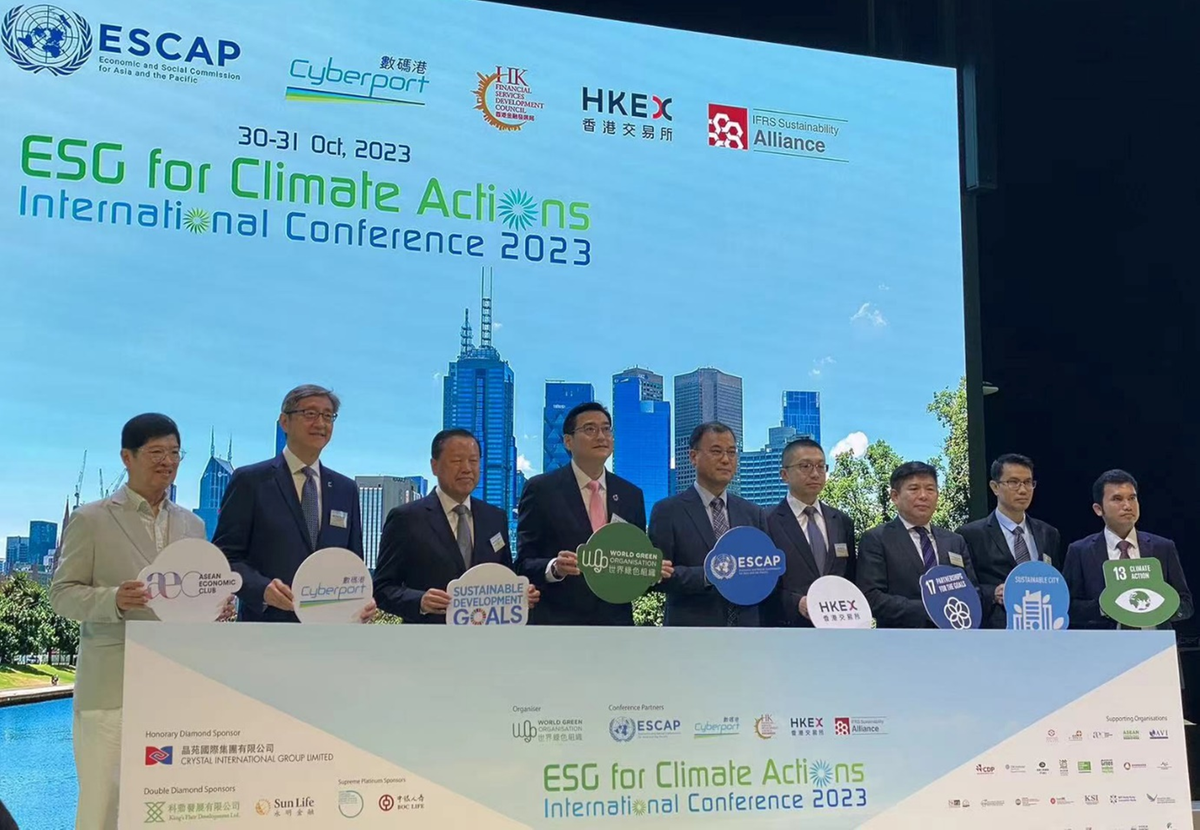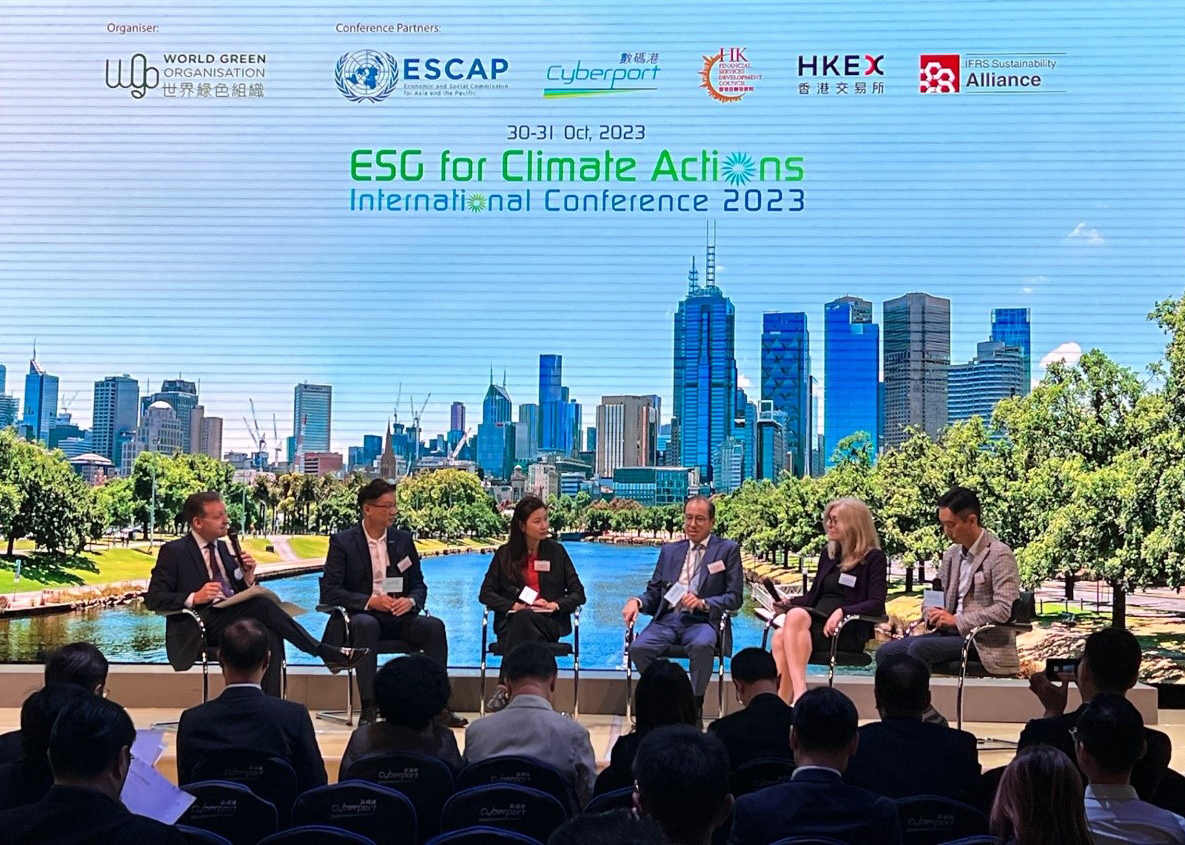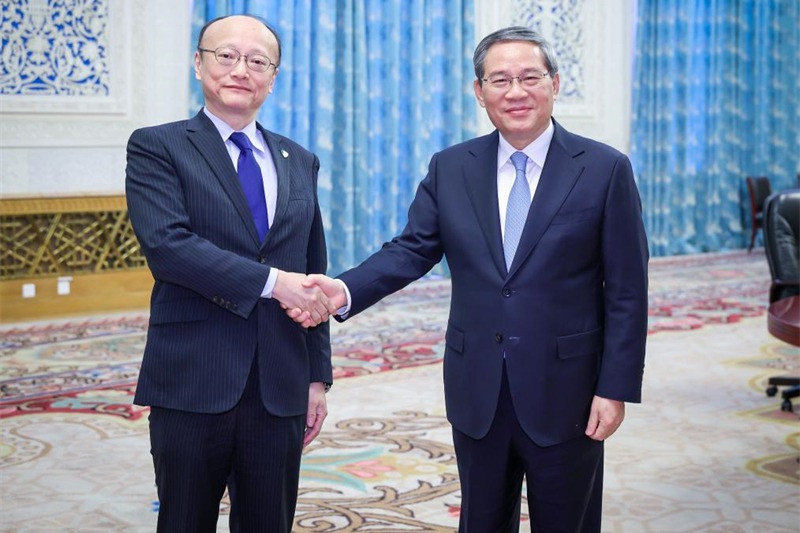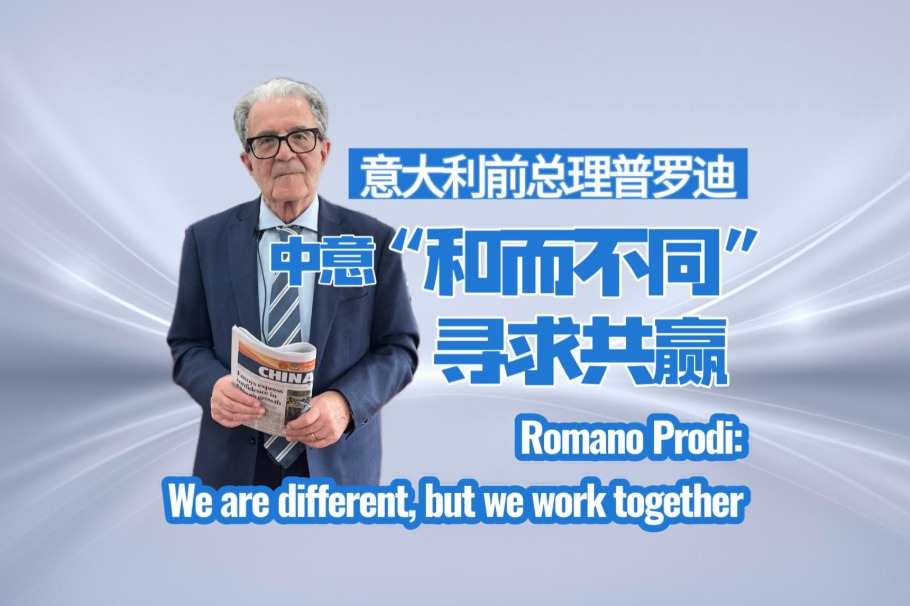Tech role in energy transition highlighted at ESG conference in Hong Kong


Technology and innovation are expected to play an increasingly important role in Asia-Pacific's transition to carbon neutrality, experts said at a conference in Hong Kong on Oct 30.
Noting that carbon emissions continue to rise despite the growth of sustainable technology over the past few years, Dixon Chan, founder and CEO of Hong Kong-based CS Tech Solution, said it has been a big challenge to decarbonize industries such as cement, aviation and coal mining.
Therefore, innovative technologies like carbon capture and utilization, which allows for the capture of carbon dioxide to be used later for different purposes, will play an important role in the region's net-zero roadmap, said Chan, speaking at a panel discussion on low carbon technology and innovation at the ESG for Climate Actions International Conference 2023.
Chan's firm specializes in providing carbon capture and utilization technology solutions services for business enterprises.
The ESG for Climate Actions International Conference 2023, a two-day event that began on Oct 30, brought together experts from government, business and academia to discuss the decarbonization issue in the forum themed "Accelerating Climate Actions in Asia and the Pacific for Sustainable Development".
The conference was organized by the World Green Organisation, an environmental NGO based in the Hong Kong Special Administrative Region. The conference partners are the United Nations Economic and Social Commission for Asia and the Pacific, Hong Kong Cyberport Management Company, Hong Kong Financial Services Development Council, Hong Kong Exchanges and Clearing, and the IFRS Sustainability Alliance.
Noting that Asia is the biggest spender on energy transition and that the region has the greatest need to transition to net-zero carbon emission, Helena Fung, head of sustainable finance and investment for Asia Pacific at the London Stock Exchange Group, said there are a lot of opportunities in the region for international investors.
For example, China alone is expected to account for almost half of renewable energy installed globally between 2022 and 2027, said Fung.

While advancements in technology and the market will draw more investor interest in green and sustainable projects, it is also important for the government to keep its policies long-lasting, said Jeffrey Kwok, senior manager of international business at Hong Kong-based Power Assets Holdings, a global investor in energy and utility-related businesses.
"Those who invested in 2009, 2010, they still survive on the incentives," said Kwok, noting that the industry will need government support and relevant infrastructure to continue its growth.
Energy companies have important roles to play in energy transition, said Jasper Chan, senior ESG (environmental, social, and governance) manager of public utility The Hong Kong and China Gas Company, better known as Towngas.
Joining the panel via video link, Jasper Chan said his company has provided a variety of renewable energies to customers and has started using landfill gas back in 1999. The company is also working to invest in the renewable energy sector while promoting the use of hydrogen in Hong Kong.
When deploying low-carbon technology solutions in the workplace, it is important to make sure that the employees will welcome the changes, said Kannas Lau, sales and marketing communications manager of Worldwide Envision Centre, a property management company in Hong Kong.
"To overcome this issue, we have to make sure our system is user-friendly," said Lau, who shared during an individual session earlier at the conference about her company's experience in the decarbonization journey in the field of real estate and property management in Hong Kong.
She said that in communicating with top management, there is a need to show them that the technology solution is an investment with good return and a reasonable payback period.
Echoing Lau's view, Vincent Kwok, deputy managing director for Hong Kong and Macao at tech company Hewlett Packard Enterprise, said the source of challenge in promoting low-carbon technology solutions is not just from the technology side but also from the people side.
Kwok said being a technology leader in the industry also means providing training.
Jean Sebastien Jacquetin, managing partner of Cavendish Investment Corp, moderated the panel session.
Contact the writers at kelly@chinadailyapac.com

- Over 5,500 liver experts to attend Asia-Pacific meeting in Beijing
- International students experience Anhui cultural heritage
- Travis Scott to bring Circus Maximus Tour to Sanya
- China beats global average in tackling TB cases
- Cultural encounters: A diplomatic gathering in Beijing
- AI turns Jinan into a Lego wonderland





































